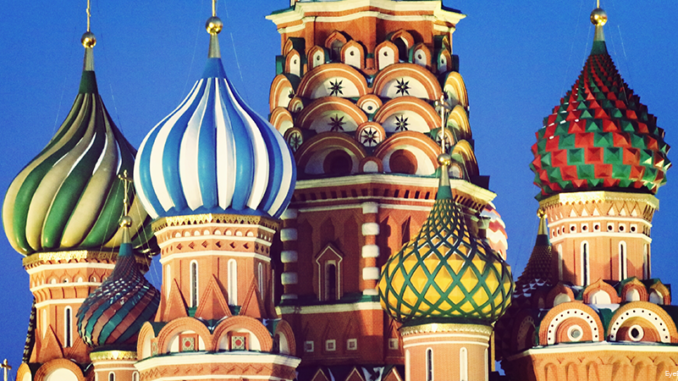
It sounds like something from a movie: Two weeks ago, the Justice Department announced the arrest of a 29-year-old Russian spy named Maria Butina. But this is no movie. Within the overall investigation of the Russian meddling within the United States election, her story is a very important one. Here, btw takes a closer look at this compelling figure and why her arrest should matter to every American.
Who Is Maria Butina?
Butina grew up in Siberia. Several years ago, she established a gun rights organization called The Right To Bear Arms (in Russia, you can own a hunting rifle, but not a handgun). This put Butina into contact with Alexander Torshin, a Russian senator who was also a member of the NRA (National Rifle Association). This led to many connections with conservatives and pro-gun leaders in the United States.
Over time, these American gun enthusiasts began to be invited to Russia. While visiting in Russia, they were hosted by Butina and Torshin. Butina was good at winning people over and, through them, establishing even more connections with U.S. politicians.
A Well-Connected Hostess
These connections led Butina to make several trips to the United States in 2014 and 2015. During these trips, Butina acted as an aide and translator to Torshin, meeting with high-profile figure in Washington, D.C. and around the nation. Butina even appeared at a political rally in Las Vegas where she asked then-candidate Donald Trump about his position on Russia.
But none of that makes a person a spy. More troubling are Butina’s messages back and forth with Torshin. In them, they discuss plans for how to further the Russian agenda in the United States. On election night, after Trump was declared the winner, Butina messaged Torshin, celebrating the win and telling him that she awaited his next order.
Who is Paul Erickson?
The plot thickens even further with Paul Erickson. A 56-year-old Republican with a long history of important connections within the political party, Erickson met Butina in 2013 on a visit to Moscow. The two began a romantic relationship. When Butina arrived in the U.S. in August 2016 to attend graduate school, Erickson began introducing her to important political figures and helping her to establish those relationships and connections. After Butina’s actions were discovered and she was arrested, Erickson’s residence was searched as part of the Justice Department’s investigation. But no formal charges have currently been brought against Erickson.
But Is She a Spy?
Technically, no. Espionage charges are reserved for people who take classified information about the U.S. and release it to other nations or entities.
Butina did not do any of those things. Instead, she worked within the United States, using influence, and connections to advance Russian interests. Therefore, the charge against her is actually for acting as the agent of a foreign government without properly registering with the Department of Justice.
The most important question that prosecutors will have to address was whether Butina was working on her own, to advance her own interests, or whether there is proof that she was acting on behalf of the Kremlin.
A Larger Threat?
Whether or not Butina is, in fact, guilty, her case being prosecuted by the Justice Department raises larger questions about individual politicians and their familiarity and personal relationships with Russian foreigners. While most of us are familiar with Trump’s controversial defense of Putin, the threat runs deeper than that, as conservative groups begin to look to Russia as an ally in protecting their cultural values.
Traditionally, the GOP has been very anti-Russia. But the past few years have seen a shift in this perspective. Russia has a traditional society with traditional gender roles. The government is very pro-church and anti-gay rights. All of this falls in line with the political emphasis being promoted by conservative Republican politicians in recent elections. Many conservatives also appreciate Putin’s strong anti-terrorist stance.
As the NRA and evangelical Christian groups do not speak out against President Trump’s support of President Putin, it seems to make the U.S. increasingly vulnerable to the threat of Russian efforts to influence political policy and affect the global relationships between the United States and its international allies.
